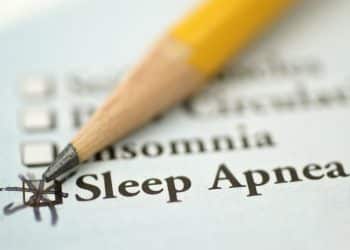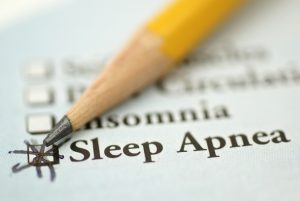 What is Sleep Apnea?
What is Sleep Apnea?
Sleep apnea is a condition characterized by interruptions in breathing while you sleep. These episodes are so brief as they often go unnoticed by the person who is sleeping.
Sleep apnea is diagnosed as a sleep disorder and can impact your quality of life due to lack of restful sleep. Over a longer period of time, sleep disruptions caused by sleep apnea may also affect your health.
What Are the Different Types of Sleep Apnea?
There are three types of sleep apnea:
Obstructive Sleep Apnea
Obstructive sleep apnea is the most common form. It happens when a physical blockage somewhere in the airway prevents regular breathing while asleep. Most of the time, this is caused by a partial collapse of soft tissue when muscle tone is lost during deep sleep.
Central Sleep Apnea
Central sleep apnea is rare. It occurs when there is an interruption in the brain or nerve impulses that tell the body how to regulate breathing while asleep. In effect, the brain may send “stop” signals that temporarily halt breathing.
Mixed (or Complex) Sleep Apnea
Mixed sleep apnea is any condition that consists of a combination of the other two types. It is often not possible to recognize mixed sleep apnea until a patient has been diagnosed and begun treatment for obstructive or central sleep apnea.
Common Signs of Sleep Apnea
Sleep apnea is often difficult to recognize. Sometimes, a person may have sleep apnea for many years without realizing it. Some symptoms of sleep apnea can be easily mistaken for unrelated issues, while others may simply go unnoticed.
The primary symptoms of sleep apnea include:
- Frequent, intense, prolonged snoring
- Choking or gasping episodes that interrupt sleep, especially while lying on the back
- Restless sleep, which may include frequent movement
- Morning headaches resulting from low oxygen levels in blood flowing to the brain
- Excessive daytime drowsiness
- Changes in mood, like irritability caused by long-term poor sleep
Many sleep apnea patients report that they first became aware of the problem after a sleep partner has informed them about these signs.
Diagnosing Sleep Apnea
Sleep apnea is typically diagnosed through an overnight sleep study. A sleep study can be performed at a sleep laboratory or, sometimes, using equipment you take home. While you sleep, the equipment collects a wide range of information such as breathing patterns and heart rate.
Treatment for Sleep Apnea
The most common treatment option for sleep apnea is the Continuous Positive Airway Pressure (CPAP) machine. This treatment is where a mask is worn during sleep. The mask is used to gently blow air into the airway at a constant pressure.
If you believe you may have sleep apnea, contact MXBowen, Physician P.C. for an appointment. Dr. Bowen can diagnose and provide treatment options for sleep apnea.

 What is Sleep Apnea?
What is Sleep Apnea?